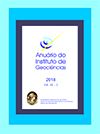Analysis of Key Factors Influencing Air Pollution of Metropolises in Developing Countries by Year 2025 (Case Study: Tehran Metropolis, Iran)
DOI:
https://doi.org/10.11137/2018_3_548_559Keywords:
Air pollution, Management style, Overseeing the production of pollutants, Developing countriesAbstract
Air pollution is among the critical issues that many metropolises of the world, especially those in developing countries, are involved with. Hence, the present study seeks to identify the key factors affecting the expected air pollution in Tehran in the future (2025), to provide a suitable platform for solving the problem arising from it. The present study is a qualitative one in terms of application regarding the nature of the data and also a documental and a field study in terms of data collecting method. To analyze and identify the key factors, the analysis of interactions between factors is used. The main results indicate that five factors, namely, “management style”, “environmental protection”, “monitoring of pollutants”, “timely planning” and “research and development” among the 21 identified are considered as the factors having a possible key role on Tehran air pollution by year 2025. In other words, these are factors capable of having a wide dominative influence on both the behavior of systems and other factors. The “satellite cities” are detected as highly important intermediate factors that can partially affect the dynamics of the system and the status of air pollution in Tehran. Important macro suggestions have been developed in the aimed time horizon based on the analysis done on these factors for solving this problem.Downloads
Download data is not yet available.
Downloads
Published
2019-10-16
How to Cite
Zali, N. (2019) “Analysis of Key Factors Influencing Air Pollution of Metropolises in Developing Countries by Year 2025 (Case Study: Tehran Metropolis, Iran)”, Anuário do Instituto de Geociências. Rio de Janeiro, BR, 41(3), pp. 548–559. doi: 10.11137/2018_3_548_559.
Issue
Section
Article
License
This journal is licensed under a Creative Commons — Attribution 4.0 International — CC BY 4.0, which permits use, distribution and reproduction in any medium, provided the original work is properly cited.















